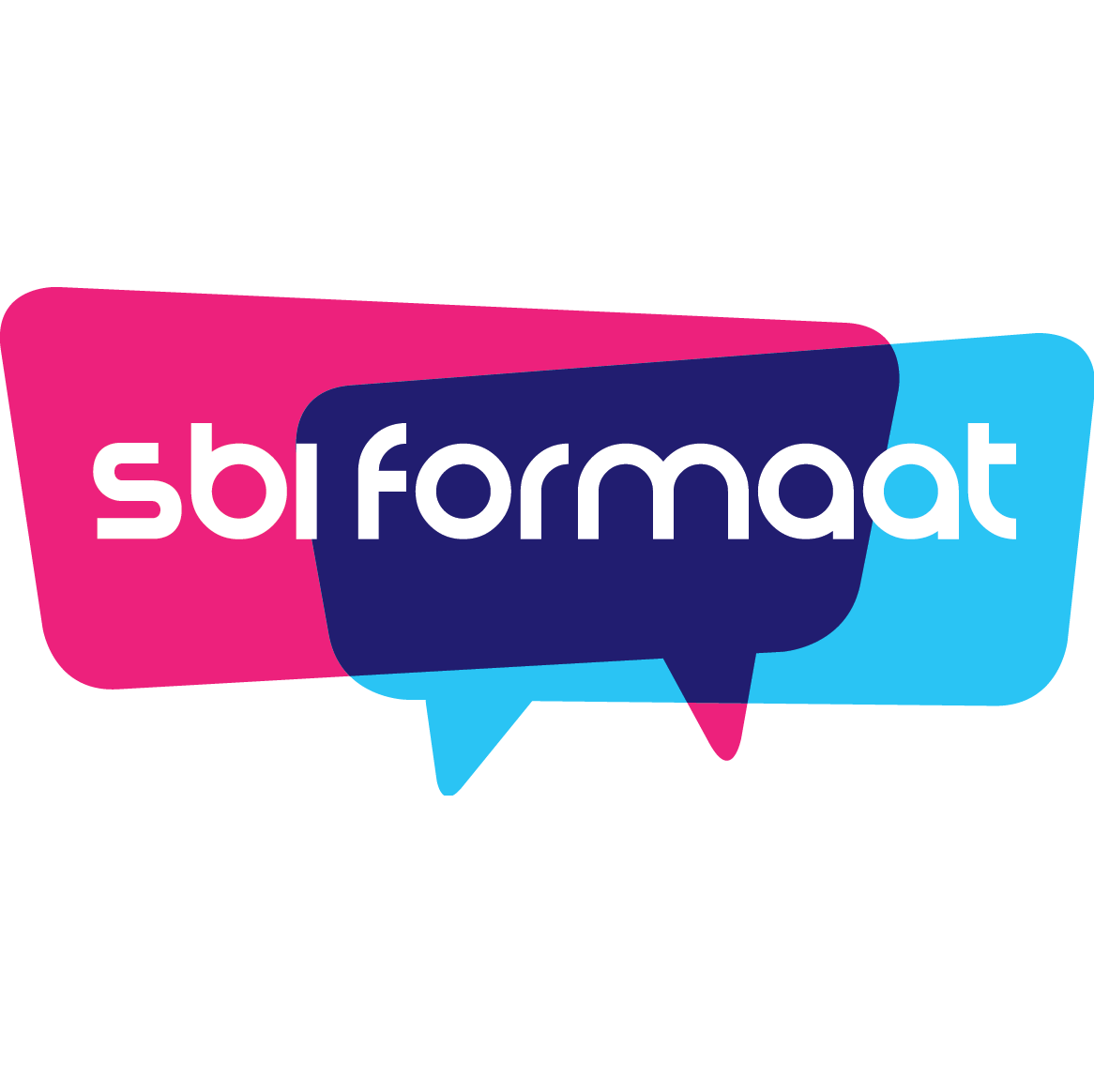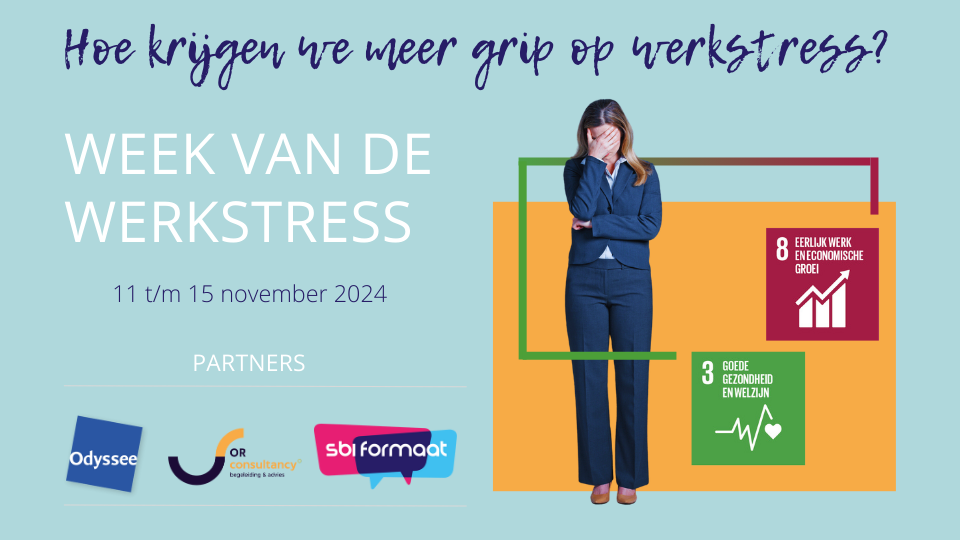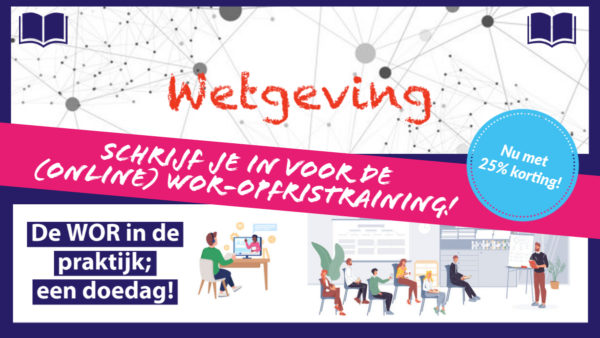The next step(s) of Employee Representation in Qatar

A visit to Qatar, for the development of an Occupational Safety and Health training module for Joint Committees
Some years back, in 2018, the International Labour Organisation (ILO, part of the United Nations (UN)) and the Qatari government signed an agreement to support the Qatar’s labour reform program. In 2023, the Dutch and Qatari governments, and the ILO signed a trilateral Memorandum of Understanding. This Memorandum further formalised this cooperation in the fields of dispute resolution, social dialogue, and wage protection. With our experience with (Dutch and European) Works Councils, SBI Formaat helped develop training modules and establish a standard operational procedure for the so-called Joint Committees (JC’s), a form of Employee Representation.
Representation of workers in Qatar is a huge task given the great diversity in nationalities, and therefore languages, of the workforce. Qatar has a small population of some 300.000 natives, on a total of about 3 million inhabitants. The workforce basically consists of migrant workers from countries like India, Pakistan, Nepal and the Philippines. The high demand for work around the 2022 FIFA World Cup, especially in building and construction, led to a peak of migrant workers. The inflow of these vast numbers of workers did not balance labour reforms, which was a strong incentive for the Qatari government to move forward.
In February 2024, a visit was made by Qatar Ministry of Labour officials to the Netherlands. During that visit, the need for a structured training module on Occupational Safety & Health (OSH) issues was identified. The OSH module will be an addition to a sequence of five existing training modules to structure social dialogue in Qatar.
The training modules for Joint Committees in Qatar |
||
| Module 1 | Roles and Responsibilities Joint Committees | |
| Module 2 | Employee participation Rights | |
| Module 3 | Dispute resolution Skills & Grievance Management | |
| Module 4 | Discrimination in Employment and Occupation (ILO Convention No. 111) | |
| Module 5 | Violence and Harassment in the World of Work (ILO Convention No. 190) | |
| Module 6 | Occupational Safety and Health | |
Consultation workshops in Doha
Because of the cultural diversity it was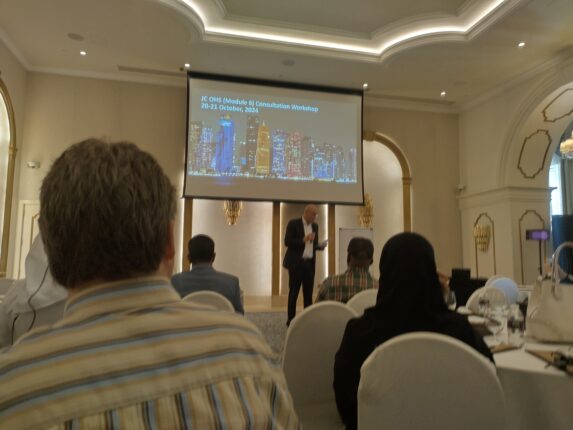 necessary to get an insight into the current status of JC’s and OSH in Qatar. Of the three-day visit, two days were set for a consultation process with a broad range of stakeholders to contextualize the design, content, and case studies of the OSH training module.
necessary to get an insight into the current status of JC’s and OSH in Qatar. Of the three-day visit, two days were set for a consultation process with a broad range of stakeholders to contextualize the design, content, and case studies of the OSH training module.
The discussions were held on the following topics:
- Awareness of OSH standards on hazardous substances, workplace design, work related stress, absenteeism policy, and inclusiveness.
- Understanding organisation safety requirements.
- Conducting joint risk assessments.
- Skills for consulting, reviewing, and developing corporate policies.
- Identifying and consulting external experts as needed.
- Best practices for participating in labour inspection visits and escalating concerns
The stakeholders involved represented a broad spectrum of interested parties in Qatar including OSH managers, welfare officers from various sectors, researchers, labour inspectors, and JC representatives of both workers and management! 46 participants joined the interactive workshops.
A peek inside Qatar companies
In order to examine the on-site state of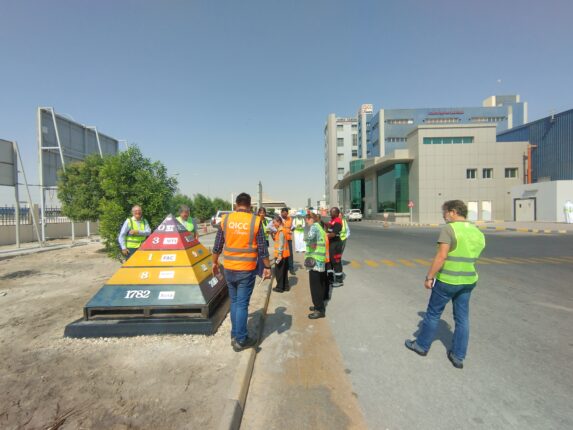 OSH practises and the involvement of Joint Committees, the last day was spent visiting a cable manufacturing factory (QICC), a worker accommodation management company (NAAS Holdings Group) and a Facilities Maintenance company (EMCO).
OSH practises and the involvement of Joint Committees, the last day was spent visiting a cable manufacturing factory (QICC), a worker accommodation management company (NAAS Holdings Group) and a Facilities Maintenance company (EMCO).
The organisations volunteered to the ILO to assist in the consultation process. These mature organisations were open and willing to seek external views on their OSH performance. The site visits were attended by SBI Formaat, ILO Qatar staff, a representative of the Dutch Embassy in Doha and officials of the Qatar Labour Inspectorate.
The results
Whereas the original request was to develop a 1-day training module, it was concluded that there is a greater difference in the OSH knowledge level of JC members than expected. This made the training module expand into a two-day training, so JC members of all levels are able to get to be trained up to the same end level. The module provides basic information on:
- Legal context in Qatar;
- Definition on all elements of labour conditions (Safety, Health, Mental issues, Accommodation, Job Content and Industrial Relations with an impact on OSH);
- Data and how to gather and analyse this information (including Risk Assessment, raising Awareness, Communication and Employee Surveys);
- Sector specific Case Studies to train practical skills;
- Role of the Joint Committee in the field of OSH and formulating the first tangible steps to be taken.
In addition to the training module, an extensive manual has been created to enable local trainers in Qatar to execute the training. The first session of the OSH-training is expected to be held on the 28th of April 2025; the National OSH Day in Qatar.
This training module was developed in the framework of the Shiraka programme an initiative of the Ministry of Foreign Affairs executed by the Netherlands Enterprise Agency (RVO).
What is the status of OSH in Qatar, in our opinion?
We were positively surprised by the status of OSH that we encountered at the companies that we met. It struck us that many companies have implemented proper safety protocols and invested significantly in training, protective equipment, and infrastructure to ensure employee safety.
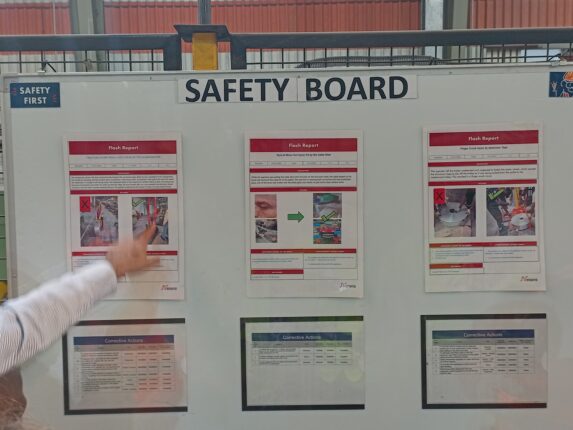 We have noticed a growing awareness among both employers and workers about the importance of creating safe and healthy working environments. These developments demonstrate a clear commitment to raising OSH standards. While there are still areas where improvements can be made, Qatar’s progress in recent years is commendable and exceeded our initial expectations!
We have noticed a growing awareness among both employers and workers about the importance of creating safe and healthy working environments. These developments demonstrate a clear commitment to raising OSH standards. While there are still areas where improvements can be made, Qatar’s progress in recent years is commendable and exceeded our initial expectations!
The next step(s)
For the future collaboration under the trilateral Memorandum of Understanding, we have been asked to give recommendations of follow-up projects in Qatar. Recurring input during the consultation workshop was the need for Joint Committee Worker Representative to have well developed ‘Soft Skills’ to deliver the expectations of their role. We also see an underlying factor: the desire for more job security. Most of the mentioned soft skills come down to skills that allow you to speak up better towards management. Here we see a great opportunity for the Qatari-Dutch cooperation to transfer knowledge and experience about how labour relations are shaped in the Netherlands.
And now the best for last! Whereas the JC’s were still in sort of a, non-mandatory, pilot stage, this will change in the near future. The ministry in Qatar, together with the ILO, are working out the stages of the implementation of a law that would make the institution of JC’s mandatory. Right now there are dozens of JC’s, but with this new law, thousands of companies will be obliged to institute this means of Employee Representation. That is a good step ahead!
In October 2024, our expert on OSH, Steven van Slageren, and our expert on international Employee Participation, Leander Boumans, visited Qatar for three days to develop a custom-made training module. Are you interested to know more about International Employee Participation? Visit our Intenational Employee Representation page.
 Written by Leander Boumans, trainer for European Work Councils.
Written by Leander Boumans, trainer for European Work Councils.



